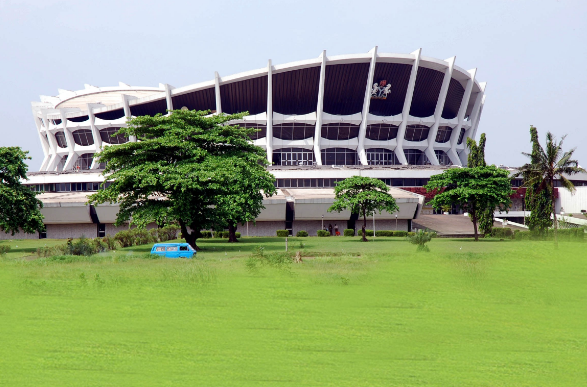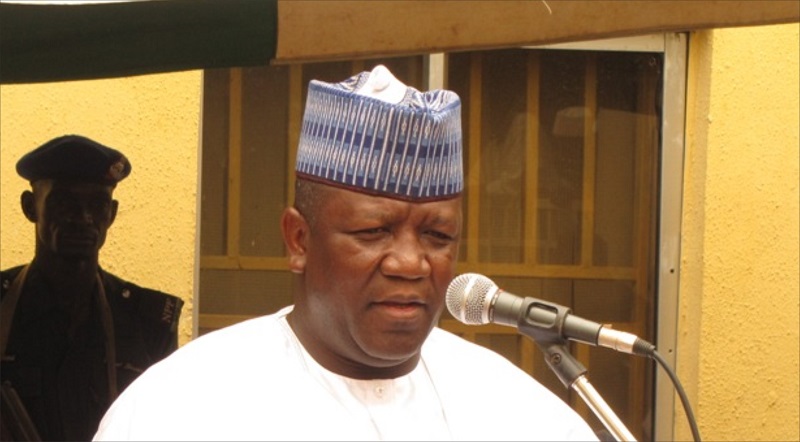Itse Sagay, chairman of the presidential advisory committee against corruption, has maintained that the senate lacks the power to summon him and urged any aggrieved lawmaker to sue him for defamation.
The senate had resolved to invite Sagay over his criticism of the red chamber for refusing to screen 27 resident electoral commissioners and seeking the sack of Ibrahim Magu, acting chairman of the Economic and Financial Crimes Commission (EFCC).
After a point of order was raised by Bala Ibn Na’Allah, deputy senate leader, the senate referred the matter to its committee on ethics and privileges.
Sagay had shortly thereafter responded saying the senate lacked the power to summon him.
Advertisement
Reacting again, Sagay has written to the senate a letter titled, ‘Re: Resolution summoning me to appear before the Senate’.
The senior advocate of Nigeria addressed the letter to Bukola Saraki, senate president.
“My attention has been drawn to the well publicised resolution of the Senate, summoning me to appear before it to justify my criticism of the illegal call on President Muhammadu Buhari to sack Mr. Ibrahim Magu, the acting Chairman of the EFCC,” the letter read.
Advertisement
“My criticism was anchored on Section 171(1) of the Constitution, which has empowered the President to appoint any person to hold or act in the office of the head of any extra-ministerial department of the Federal Government.
“Although I have not been served with any summons from the Senate, I deem it fit to take issue with members of the Senate over the threatened violation of my fundamental right to freedom of expression guaranteed by Section 39 of the Constitution of the Federal Republic of Nigeria, 1999 as amended and Article 9 of the African Charter on Human and Peoples’ Rights (Ratification and Enforcement) Act (Cap A9) Laws of the Federation of Nigeria, 2004.
“However, the power to conduct enquiries is not at large. Thus, by virtue of Section 88 (1) & (2) of the 1999 Constitution the National Assembly shall have power to direct or cause to be directed investigation into the conduct of any person, authority, ministry or agency of the Federal Government subject to the provisions of the constitution,” Sagay said.
The senior advocate of Nigeria (SAN) cited three instances regarding the power of the national assembly to summon people.
Advertisement
Sagay said the cases of Innocent Adikwu v. Federal House of Representatives ((1982) 3 NCLR 394 at 416), Senate of National Assembly v. Momoh ((1983) 4 NCLR 269 at 29), and Mallam Nasir Ahmed El-Rufai v. The House of Representatives, National Assembly of the Federal Republic of Nigeria & Ors ((2003) 46 WRN 70) showed that the senate lacked the right to summon him.
It reads further: “Applying the principle of law, enunciated in the above cited cases, I am fortified in my submission that the Senate lacks the constitutional power to summon me to justify my condemnation of the illegal actions of its members.
“The Senate cannot be accuser, prosecutor and judge in its own case. However, any aggrieved member of the Senate has the liberty to sue me for defamation in a competent court of jurisdiction.
“Consequently, I urge you to withdraw the resolution summoning me to appear before the Senate. If you fail to accede to my request, I will not hesitate to challenge the legal validity of the summons, once it is served on me.”
Advertisement
Add a comment






